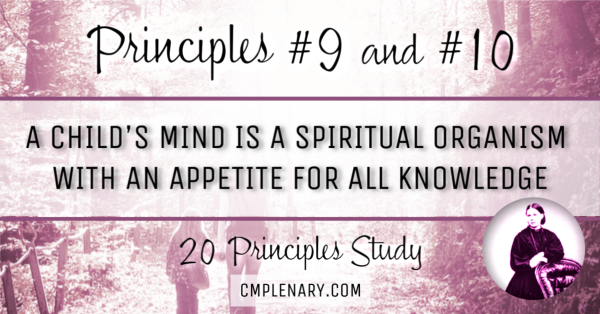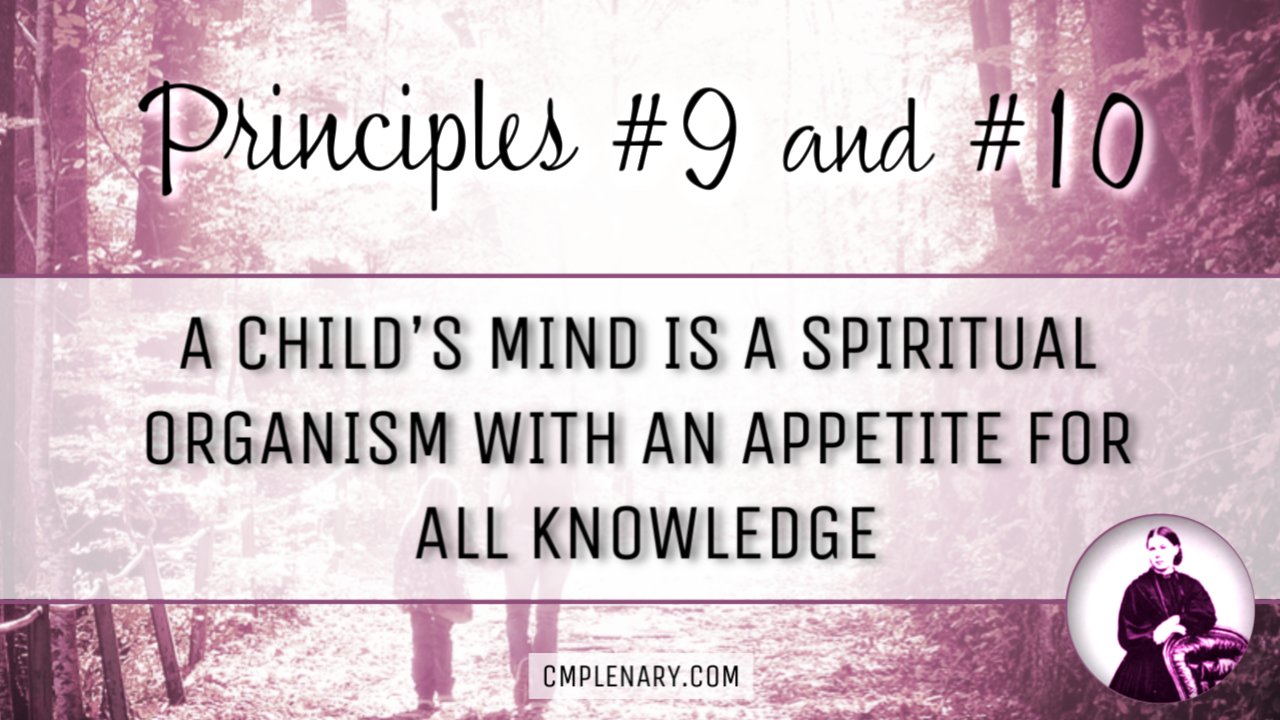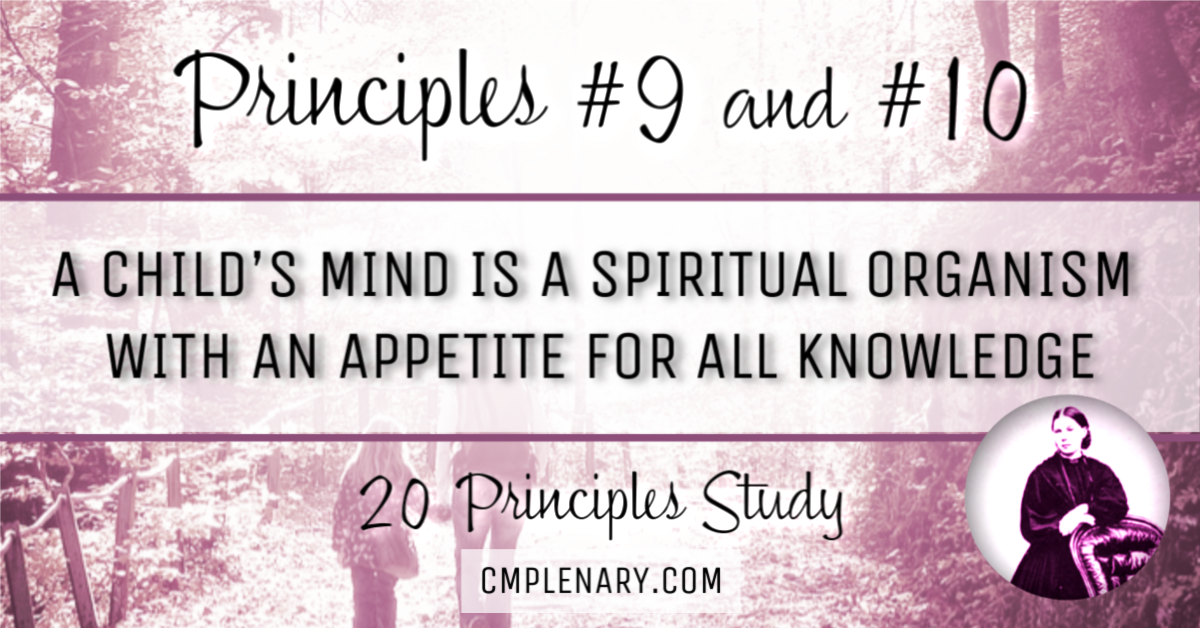CHARLOTTE MASON'S PRINCIPLES #9 and #10
A Child’s Mind is a Spiritual Organism
with an Appetite for All Knowledge

Charlotte discusses Principles #9 and #10 in Chapter 7 of Volume 6, titled “How We Make Use of Mind.”
It’s an interesting title for this chapter because she is discussing how we, as parents and teachers, approach education and which educational philosophies we should reject.
And the first thing Charlotte does in this chapter is go on a bit of a rant about the educational philosophy of Johann Friedrich Herbart, which was popular at the time (and still is) but it was a philosophy she was completely against.
Herbart believed that a child is a blank slate, a vessel to fill. And, he said, it is the teacher’s responsibility to fill that blank slate, to “pour in” the correct ideas; to “mold” the child by using Herbart’s educational technique.
In Principles #9 and #10, Charlotte is taking a stand against Herbart’s philosophy:
PRINCIPLE #9
We hold that the child’s mind is no mere sac to hold ideas but is rather, if the figure may be allowed, a ‘spiritual organism’ with an appetite for all knowledge. This is its proper diet with which it is prepared to deal and what it is able to digest and assimilate as the body does food-stuffs.
PRINCIPLE #10
Such a doctrine as the Herbartian, that the mind is a receptacle, lays the stress of education, the preparation of food in enticing morsels, duly ordered, upon the teacher. Children taught on this principle are in danger of receiving much teaching but little knowledge; the teacher’s axiom being 'what a child learns matters less than how he learns it.'
Herbart believed that a child had no innate ideas… no pre-established thought or personality, which goes against Charlotte’s Principle #1, that children are born persons.
Here’s what Herbart had to say about the soul:
“The soul has no capacity nor faculty whatever either to receive or produce anything: it is therefore no tabula rasa in the sense that impressions, foreign to its nature, may be made on it. Also it is no substance … neither ideas, nor feelings, nor desires. Further, within it lie no forms of intuition and thought, no laws of willing and acting, nor any sort of predisposition.” –Textbook on Psychology by Johann Friedrich Herbart
Herbart also employed one particular technique that is still very popular today, especially in the homeschooling world. In fact, you’ve probably used this teaching technique and didn’t even realize that it started with Herbart!
You can be sure that Charlotte did NOT like it!
I go into more detail on Herbart and the techniques he used in the video below.
The main reading for this principle is:
- Volume 6, Chapter 7: HOW WE MAKE USE OF MIND
You can download the entire chapter in the FREE STUDY GUIDE below, which also includes study questions for these Principles:
Video for Principles #9 and #10

HOMEWORK FOR THESE PRINCIPLES
Read the included chapter portion and watch the video. Answer the included questions and then join us over in The Plenary Facebook Group!
Tell me what you think about Herbart’s technique and if you’ve ever tried it!
I hope to chat with you soon!
Other Posts in This Series:
Finding Your Way with Charlotte Mason's 20 Principles
Principle #13
Principle #14
Principle #15
Principle #16
Principle #17
Principle #18
Principle #19
Principle #20

0 Comments for “Charlotte Mason’s Principles 9 and 10: A Child’s Mind is a Spiritual Organism with an Appetite for All Knowledge”